ANTD.VN - The explosion of the cryptocurrency market is opening up business opportunities and enterprise development, technological innovation for countries, including Vietnam. However, it also poses challenges in terms of control, transparency and financial stability.
 |
Cryptocurrency opens up many opportunities for business and enterprise development |
The strong growth of cryptocurrencies
Cryptocurrency is a type of currency that is stored and used in digital form, issued by government organizations, banks or private organizations. Unlike paper money or coins, crypto is a form of electronic money, which does not exist in physical form that can be touched or seen. Cryptocurrency transactions are conducted entirely in an electronic environment and must be connected to the network to operate. In the digital currency market, the most important factor is trust. When people believe in a currency, they will invest in it, thereby creating value. On the contrary, if there is no trust, even if the currency is issued, no one will care and it will have no real value. The value of crypto is regulated by the law of supply and demand, depending on market demand, and is not subject to the regulation of price stabilization policies from the state.
Although not a specific good or service, cryptocurrencies can be used as a means of payment. Transactions using digital currencies are cross-border and help control many costs. For example, businesses that want to import equipment and raw materials often have to buy them in USD, and may have to buy at a price difference. But using cryptocurrencies, businesses do not need to convert to USD and can still pay because this digital currency is recognized and has the ability to trade across borders.
Cryptocurrencies have seen a surge in recent years. According to CoinMarketCap and other cryptocurrency tracking platforms, there are currently around 25,000 cryptocurrencies in circulation, with a total market capitalization of $2.81 trillion. By 2030, crypto assets backed by real assets will account for 10% of global GDP, or around $16 trillion, according to a forecast by global consulting firm Boston Consulting Group (BCG). This rapid growth has fueled interest in offering cryptocurrencies as a means of payment in the global market.
For example, Gucci - Kering's flagship brand has allowed purchases with 10 cryptocurrencies for most of its products in the US since 2022. In addition, some major brands such as watch brands Hublot, Tag Heuer (belonging to LVMH), fashion brands Gucci and Balenciaga (belonging to Kering); or French luxury department store Printemps, high-end lighter and fountain pen manufacturer ST Dupont, cruise company Virgin Voyages ... have also tested payments with cryptocurrencies.
For Vietnam, according to a report by the TripleA organization in Singapore, our country currently has about 17 million people owning crypto assets, accounting for 17% of the population, ranking 5th globally, compared to the average global population of 6.5%, this is a very large number. Popular cryptocurrencies such as bitcoin (BTC), ETH, SOL, DOGE, KAITO, Pi... are traded quite commonly. Binance, Remitano, MEXC Global, BitMart are cryptocurrency exchanges that are attracting great attention.
Data from Chainalysis - the world's leading crypto data analysis company - shows that the flow of crypto assets into Vietnam will continuously maintain over 100 billion USD per year, from 2022-2024, more than double the flow of foreign direct investment (FDI). Vietnam has a great opportunity to take advantage of revenue from digital asset transactions. If applying a personal income tax rate of 0.1% like securities, Vietnam can collect more than 800 million USD in taxes each year.
Need a legal framework suitable for digital assets
Cryptocurrencies are changing the way transactions are made, opening up many business opportunities and developing enterprises. However, regulators have also repeatedly warned that cryptocurrencies are high-risk assets with limited practical applications. In just a short period from the beginning of 2025 until now, the cryptocurrency market has experienced many huge price fluctuations, creating barriers to the widespread use of cryptocurrencies as a means of payment. This poses security and legal challenges, requiring an appropriate legal framework for this type of digital asset soon.
Faced with the explosion of the cryptocurrency market, governments around the world have taken different approaches, from tightening regulations to protect investors to building a legal corridor to support the development of this field. Currently, about 120 countries in the world have legalized cryptocurrencies, of which 62 countries have established comprehensive regulations. The remaining 22 countries, especially China, have completely banned the use and trading of cryptocurrencies.
In the United States, the administration of President Donald Trump has shown strong support for digital assets. During his campaign for a second term, Donald Trump pledged to turn the United States into the “cryptocurrency capital of the world” and proposed the establishment of a national Bitcoin reserve. Recently, Donald Trump signed an executive order, officially allowing the US government to establish a strategic reserve of digital assets. According to the plan, the US government will include five cryptocurrencies including Bitcoin (BTC), Ethereum (ETH), Ripple (XRP), Solana (SOL) and Cardano (ADA) in the new strategic reserve fund.
In an effort to ensure that the cryptocurrency market can develop well and limit the risk of fraud or loss of assets for digital asset owners, in April 2023, the European Union (EU) adopted Markets in Crypto-Assets (MiCA) - the first large-scale regulation to establish a common legal framework for the digital asset market. MiCA requires companies that want to issue, trade or protect digital assets, tokenized assets and stablecoins (a type of cryptocurrency created to track the value of another asset or currency, usually calculated in USD Euro units) in the 27 EU member states to have an operating license.
In contrast to the US and EU, China has maintained a tough stance on cryptocurrencies. In 2021, Beijing banned cryptocurrency trading and mining altogether due to concerns about financial stability and energy consumption. However, China has continued to promote blockchain technology and has focused on developing a central bank digital yuan (CBDC), rather than decentralized cryptocurrencies.
In Vietnam, research on digital assets and cryptocurrencies began in 2018. Some definitions of digital assets have been mentioned in the Law on Digital Technology Industry, but there are still no specific regulations on the management and supervision of digital currency transactions. However, in the trend of digital currencies becoming increasingly popular in the world and the market, Vietnam is no exception, requiring our country to soon research and have a suitable approach, with a suitable legal framework.
At the end of February, during a meeting with the Central Policy and Strategy Committee on the issue of digital currency management, General Secretary To Lam agreed with the proposal to soon manage this currency as a virtual asset. According to the General Secretary, the National Assembly and Government agencies need to soon institutionalize and specify the management of this field, and at the same time study and apply a controlled pilot mechanism (sandbox) to establish an exchange for this activity.
At the regular February Government press conference organized by the Government Office on the afternoon of March 5 in Hanoi, the Ministry of Finance said that it had been assigned by the Prime Minister to report in March to issue a Resolution on piloting the operation of a virtual currency exchange, organized by a state-licensed enterprise. From there, organizations, individuals, and investors in Vietnam will have a place to trade, invest, and buy and sell. The State will protect the legal and legitimate rights of organizations and individuals when participating in activities in this market.
Source: https://www.anninhthudo.vn/quan-ly-tien-so-de-thuc-day-phat-trien-kinh-te-post606239.antd


![[Photo] Journalists moved to tears at the Memorial Service for the soldiers who died in Gac Ma](https://vphoto.vietnam.vn/thumb/1200x675/vietnam/resource/IMAGE/2025/5/30/9454613a55c54c16bf8c0efa51883456)

![[Photo] General Secretary To Lam receives Chief of the Central Office of the Lao People's Revolutionary Party](https://vphoto.vietnam.vn/thumb/1200x675/vietnam/resource/IMAGE/2025/5/30/140435f4b39d4599a3d17975dfb444c5)

![[Photo] National Conference "100 years of Vietnamese Revolutionary Press accompanying the glorious cause of the Party and the nation"](https://vphoto.vietnam.vn/thumb/1200x675/vietnam/resource/IMAGE/2025/5/30/1cf6cd5c8a934ebfa347028dcb08358c)
![[Photo] A delegation of 100 journalists from the Vietnam Journalists Association visits the soldiers and people of Truong Sa island district.](https://vphoto.vietnam.vn/thumb/1200x675/vietnam/resource/IMAGE/2025/5/30/0984a986227d4e988177f560d2e1563e)
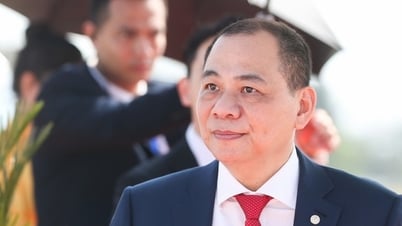
















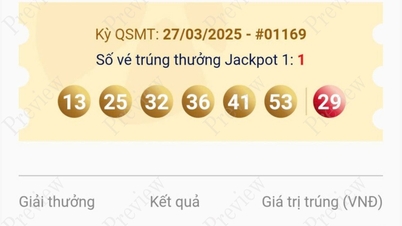

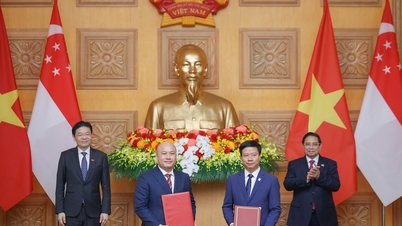






































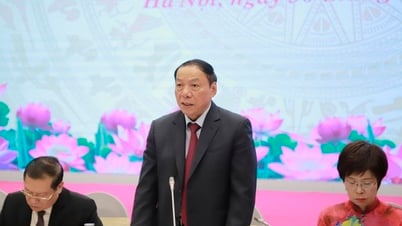






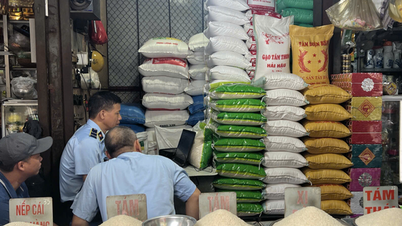




















Comment (0)